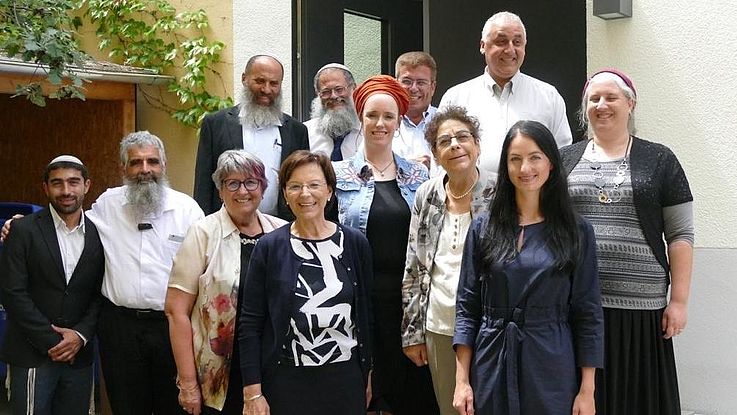Delegation of Jewish-religious Scholars to Bavaria
State and Religion in the German Context
From the 30th of June until the 4th of July, a delegation of Rabbis and women Halachah experts from the National-Religious stream of Judaism in Israel, went on a five day study trip to Germany, to discuss the German model of separation of State and Religion. The delegation was in cooperation with our partner the Citizens' Accord Forum.
The trip was filled with meetings and encounters with church representatives, politicians and leaders of the Jewish community, in order to learn about how Germany established a system of separation between State and religion. For example, in Germany the State functions as a tax collector on behalf of different religious communities. This means that if a taxpayer voluntarily decides to be part of an official religious community, the State will be in charge of deducting a “religious tax” and transferring it to the specific religious denomination chosen by the taxpayer. This model was discussed when meeting with Mr. Bernhard Hasselberger Bishop of Munich, with Mr. Udo Hahn, head of the Protestant Academy in Tutzing, as well as with members of the Catholic Women's Association. A more political view of the subject was discussed with the Vice President of the Bavarian Parliament, Mr. Karl Freller, as well as with former Vice President of the German Bundestag, Mr. Johannes Singhammer. The delegation also took part in interesting discussions with academic experts on the matter, such as with Prof Nassehi, head of the Sociology Department of the LMU and with Prof. de Wall an expert on Church Law.
In addition to the more formal aspect of our visit, was also a more personal trip to the small town of Gunzenhausen. This was an emotional visit, especially for our delegation member Rabbi Cherlow, whose family lived there before the war and where the very first attack on Jews in Nazi Germany was perpetrated. The visit opened up a discussion about the ethical values of a society and its erosion through totalitarianism, a discussion that was continued during a later visit to the NS-Documentation Center in Munich.
The topic of Jewish life in Germany, the relation between State and (Jewish) religion, and the challenges of leadership, was further discussed during our meetings with Dr. Charlotte Knobloch, head of the Jewish community in Munich and upper-Bavaria, as well as with Munich Rabbi Brodmann, and with Sandra Simovich, Consul of the State of Israel.
Overall, the participants found their first trip to Germany to be of utmost value, which enriched their thinking and encouraged them to continue their discussions on the topic in the future.

